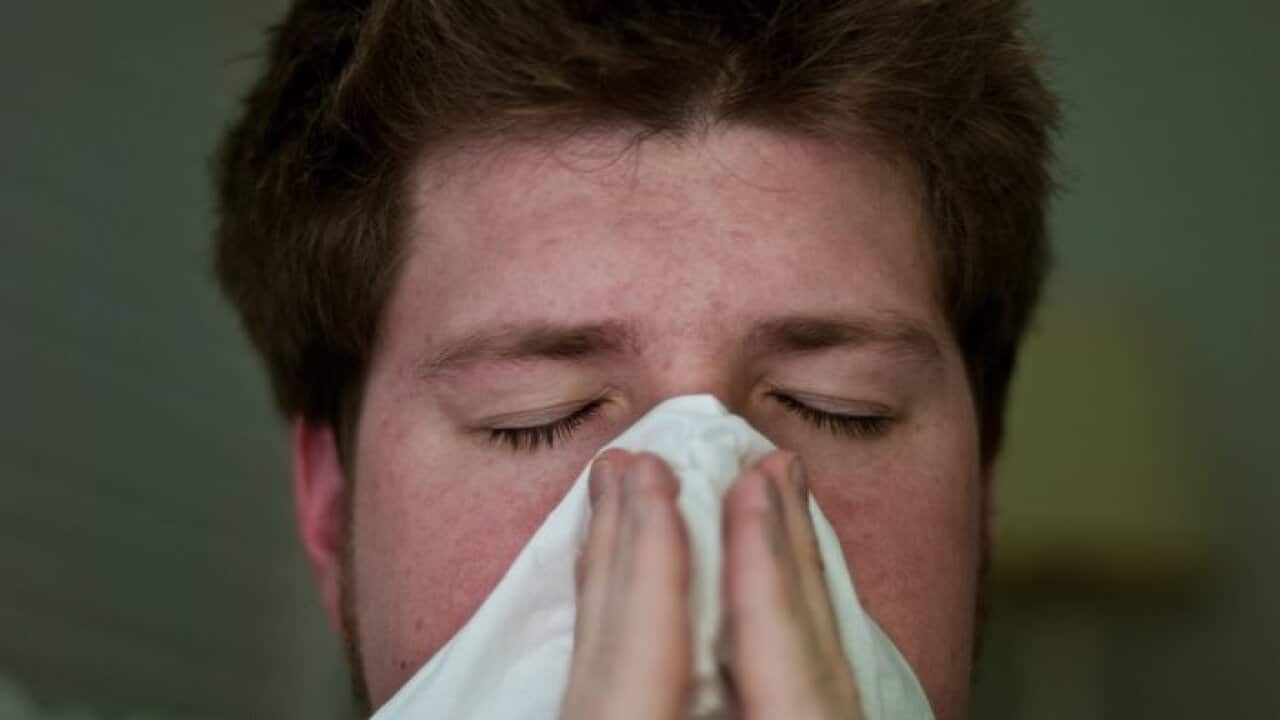The National Immunization Program 2016 seasonal flu shot roll out commences in April.
The Australian Influenza Surveillance Report figures show in 2015,levels of reported influenza cases peaked at 11 thousand with most cases in children aged 5 to 9 years and people aged over 85.
National Centre for Immunisation Research and Surveillance (NCIRS) Senior Medical Scientist Kevin Yin explains the increase in flu cases.
“One of the main reasons for the increase is that there are much more testings in recent years for the cases which we suspect they are the flu. Means they going to swab from the nose and the throat and send to the lab. We use some techniques in the lab to tell whether this is caused by the flu virus or not. After the pandemic we got much more public funding. That’s why we see more laboratory testing in the recent years.”
Australia’s strict vaccine surveillance requires the vaccine to be approved by the Therapeutic Goods Administration (TGA), only after passing compliance and standards testing.
Renewing The Vaccine:
Unlike most vaccines, the makeup of the influenza shot is renewed each year.
Kevin Yin explains why.
“There are two reasons for it. Because the viruses keep changing themselves, so that the vaccine needs to be updated every year to protect you against the virus. The second one is that the protection from the flu vaccine is slowly declining. For people who are aged 6 months to less than 9 years, if it’s your first time to get a vaccine, you need to have two doses, which means 2 times 4 weeks apart. And this also applies to people who get chronic medical conditions.”
Vaccine Types:
Kevin Yin outlines the two different types of flu vaccines available.
“From this year we have two types of vaccines available in Australia. Trivalent and quadrivalent vaccines. The difference between these two, is that the trivalent provides protection against 3 types of the flu viruses, the quadrivalent provides protection against four. We believe that the quadrivalent vaccine would have the potential to provide bigger or greater protection. If the quadrivalent vaccine is not available, you should try and get the trivalent one because it will still provide good protection.”
Recommended Time for Vaccination:
With the peak season of the illness falling into August, the immunisation program starts in the middle of autumn.
“Autumn is the preferred time to get a flu vaccine. I think it will allow time for a vaccine to work before the flu seasons. If you miss the chance to get a flu vaccine in autumn, it is still useful to get it, even though the flu season has already started. National program starts every year around March and April, depends on when the vaccine becomes available in our country.”
Influenza shots are delivered through primary care clinics and local GPs.
Side Effects:
However after receiving the flu shot, some people can experience flu-like symptoms.
Despite this, Kevin Yin says the vaccine doesn’t give people an active flu.
“The vaccine that we registered in Australia will not give you the flu infection, because the virus that we use in our vaccine that we use in our country are dead virus. Some people will have side effect from vaccination and both of them are quite mild so people will feel fatigue and will feel mild fever. And this is part of the process our immune system responds to the vaccine components. “
Vaccine Availability:
The flu shot is free to people who face a high risk from influenza and its complications.
Kevin Yin explains.
“Our national vaccination programs provide free vaccine to the people who have the highest risk of becoming really ill from the flu. This includes 4 major categories: the people who are aged 65 and older, pregnant women, and indigenous people of certain ages. And also people with certain medical conditions for example heart diseases, lung diseases, diabetes and conditions which can reduce function of your immunity system.”
Vaccine Safety for Pregnant Women:
The Federal Government’s Immunise Australia Program advises it’s safe to receive a flu shot at any stage of pregnancy, and Kevin Yin agrees.
“There are [is] strong data showing that the vaccines are safe at any stage of the pregnancy and also good data showing that the vaccine is effective up to 85% about the flu infection if you get it during your pregnancy.”
So if more people get vaccinated, will this lessen the chance of catching the flu?
Kevin Yin says a vaccinated proportion of the community will reduce infection rates, but numbers depend on many factors.
“So the percentage of effectiveness will depend on many factors, like the age, like the seasons, like the viruses in the community, it’s very hard to say the precise figure but there is a range which we believe will be quite applicable.”
Just one vaccinated person can help to positively affect the wider community.
“By vaccinating yourself, you can reduce the transmission of the virus within the community which kind of indirectly protects people who are not vaccinated.”
TheImmunise Australia Programwebsite contains more information on the flu vaccination rollout.
